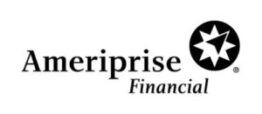
Craig D. Dima, of Ronkonkoma, New York, a stockbroker registered with K.C. Ward Financial, was charged by Financial Industry Regulatory Authority (FINRA) in a Complaint alleging that Dima made unauthorized trades in a customer’s account and fraudulent representations in connection with such. Department of Enforcement v. Craig David Dima, No. 2015046440701 (Aug. 18, 2016).
According to the Complaint, between June of 2010 and August of 2015, at a time when Dima was a stockbroker with K.C. Ward Financial, he had effected, in an unauthorized manner, an estimated forty-one sales of stock in Colgate-Palmolive Company in the investment account of an elderly customer, RS. The Complaint stated that RS was a retired employee of Colgate, and had been investing through Dima since 2006. RS reportedly held an IRA account through KC Ward which contained an estimated ninety percent of RS’s overall holdings, which is where FINRA claimed that the unauthorized trades occurred.
Particularly, the Complaint stated that Dima, acting on RS’s behalf, prepared a new customer account form pertaining to RS’s IRA, in which Dima claimed that RS had moderate risk tolerance and growth objectives. The assets that were used by RS for purposes of investing came from her Colgate stock which had accumulated over a twenty-eight-year period while employed with Colgate. Through the aforementioned time frame, Dima’s largest account was RS, and Dima generated an estimated eighty percent of his commissions from RS’s account alone.
FINRA detailed in the Complaint that Dima engaged in eleven trades on a round trip basis, in which he sold RS’s Colgate positions within RS’s IRA, and proceeded to repurchase the stock in Colgate after a short period of time. The transactions were alleged by FINRA to have been made by Dima on a riskless principal basis.
In one example provided in the Complaint, Dima had sold five thousand shares of Colgate in RS’s IRA on October 31, 2012, in which the shares were priced at roughly $103.00 per share. Dima subsequently purchased the five thousand shares of Colgate stock shortly afterwards, on December 6, 2012, in which the purchase prices ranged from $106.87 to $111.00 per share. FINRA alleged that this transaction resulted in RS paying $28,000.00 to RS as a result of mark-ups/mark-downs, all while RS incurred $18,561.00 in investment losses.
The Complaint alleged that through the aforementioned time frame, Dima made an estimated eighty-two trades concerning Colgate stock in RS’s account, which FINRA estimated at $15,000,000.00. With respect to each trade, Dima apparently raked in money from RS through mark-ups/mark-downs, and through principal transactions that were riskless.
FINRA claimed that RS had generated six percent mark-ups/mark-downs for each of the round trip transactions pertaining to Colgate. RS was reportedly charged $372,000.00 in connection with the mark-ups/mark-downs, in which these fees were solely associated with the purchase and sale of the Colgate stock. RS also reportedly forked out $4,000.00 in ticket charges to Dima for the aforementioned trades.
The Complaint further stated that RS was deprived of divided payments estimated at $127,000.00 due to the scheme in which Dima orchestrated for short term trading. RS would have reportedly earned such dividends if Dima did not pursue the unauthorized trading in RS’s account. FINRA further claimed that Dima’s unauthorized trading on a round trip basis caused RS to bear a total loss estimated at $72,000.00.
FINRA claimed that if Dima did not engage in the short term trading in an unreasonable manner and instead kept RS’s stock positions in Colgate in-tact, RS’s account would have been worth an estimated $329,000.00 more in November of 2015.
The Complaint further stated that RS was routinely subject to Dima’s fraudulent misrepresentations concerning the Colgate stock in an effort by Dima to conceal his misconduct. Particularly, between June of 2010 through August of 2015, Dima was informed by RS on a consistent basis that RS did not wish to sell her Colgate stock positions, and that RS wished to keep such investments in the long term so as to generate annual dividends.
FINRA alleged that Dima ignored RS’s wishes to hold her positions in Colgate, and prompted forty-one sales of her stock in the company on an unauthorized basis. FINRA claimed that Dima’s unauthorized trading in RS’s account was conduct violative of FINRA Rule 2010.
Dima seemingly attempted to fraudulently misrepresent to RS, or otherwise make fraudulent omissions to RS, pertaining to the basis of the sales of RS’s Colgate stock. The Complaint stated that RS questioned Dima upon learning of the sales of her Colgate stock, resulting in Dima claiming in a fraudulently misrepresented manner that technical problems and computer glitches were the cause. Dima reportedly blamed K.C. Ward Financial, as well as the clearing firm utilized, for his scheme which resulted in the unauthorized sales. Dima apparently also blamed such sales of Colgate on errors committed by the staff of K.C. Ward Financial and the clearing firm.
FINRA further alleged that RS was promised by Dima to receive reimbursements in the form of dividend payments which were supposed to be restored to her account in connection with the botched transactions. However, RS apparently was never provided with such reimbursement for the commissions and other fees, nor was RS reimbursed for dividend payments. Dima’s fraudulent omissions and misrepresentations to RS constituted, according to FINRA, violations of Securities Exchange Act of 1934 Section 10(B), SEC Rule 10b-5, as well as FINRA Rules 2010 and 2020.
FINRA further claimed that Dima’s short term trading scheme, in which eleven round trip transactions were effected, were unsuitable. Dima’s conduct, which led to RS bearing substantial trading losses, is alleged by FINRA to be violative of FINRA Rules 2111, 2010, and NASD Conduct Rule 2310. Further, FINRA claimed that Dima’s mark-ups and mark-downs pertaining to the round trip transactions was not reasonable, nor fair. As such, FINRA claimed that Dima’s conduct in this regard was violative of FINRA Rules 2010, 2121, as well as NASD Conduct Rule 2440.
Public disclosure records via FINRA’s BrokerCheck reveal that Dima has been subject to twelve disclosure incidents. On July 15, 1996, Dima was terminated from a prior firm, Meyers Pollock Robbins, Inc., the Harvard of boilerrooms, amid allegations of transacting securities business in Wisconsin despite not being properly registered. Since 1997, Dima has been associated with seventeen different brokerage firms, at least ten of which have been expelled by securities regulators. On January 20, 1997, Dima received a censure and $2,500.00 fine from The National Association of Securities Dealers, Inc. after consenting to misconduct allegations. On May 20, 1998, Dima’s securities registration was subject to revocation by South Carolina’s Securities Division after he failed to properly apply for the appropriate registration.
Dima has also been subject to several customer disputes. On September 3, 1999, Dima was named in a customer complaint, in which the customer requested $16,000.00 after alleging that that Dima engaged in unauthorized equity transactions in the customer’s account. On December 5, 2000, Dima was named in a customer dispute in which the customer alleged that Dima engaged in unauthorized transactions in the customer’s account concerning equity positions.
On February 27, 2001, a customer was awarded $3,290.61 against Dima after claiming that Dima engaged in the unauthorized use of margin. On April 25, 2001, Dima was terminated from another prior firm, Sterling Financial Investment Group, in connection with allegations of unauthorized purchases of stock in a client’s account.
On August 31, 2004, Dima settled a customer dispute for $14,999.00 amid allegations of unauthorized trading as well as unsuitability. Dima has also been subject to a pending customer dispute on November 10, 2014, in which a customer has requested $100,000.00 in damages in connection with losses due to investment strategies implemented by Dima that did not conform with the investor’s needs.
Guiliano Law Group
Our practice is limited to the representation of investors. We accept representation on a contingent fee basis, meaning there is no cost to you unless we make a recovery for you. There is never any charge for a consultation or an evaluation of your claim. For more information, contact us at (877) SEC-ATTY.








